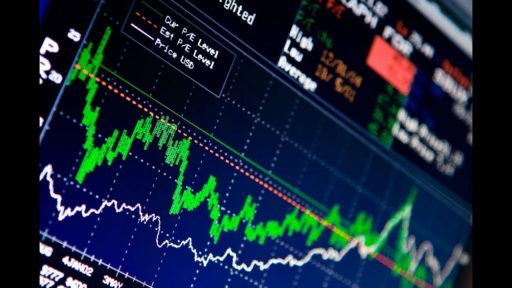- Home
- >
- Stocks Daily Forecasts
- >
- Market fear is rising — but do investors have anything to worry about

Market fear is rising — but do investors have anything to worry about

A return of market volatility has brought a new normal for investors after record low levels of fear and downright complacency. But does that mean investors actually have something to fear in 2018?
From presidential tweets to trade battles, North Korea, Iran, soaring oil prices, slumping tech stocks on privacy fears, rising 10-year U.S. Treasury yields, Federal Reserve policy and, of course, earnings — there is no shortage of factors to stress about.
One long-term active investor admitted to me recently that he was barely sleeping coming up to a string of major cap stocks in the United States all reporting in the same week, which had the potential to cause huge swings in the performance of his fund.
It is a rare comment from an investor who typically looks through stock gyrations based on faith in fundamentals, but in this trading environment even active managers are being hit by large stock moves.
Others believe the bulls are in denial. "For many, nothing has changed, but for me everything has changed," said Francesco Filia, the chief executive and chief information officer of Fasanara Capital, who cited rising volatility and the trend breaking down as big market risks.
"The market sell-off can be substantial, we have seen nothing yet," he added and described the current market action like a ball hitting the pavement and bouncing.
The economic cycle is key to investor sentiment. NN Investment Partners found in its Global Cycle Indicator of 70 household and business surveys that, for the first time since 2016, business cycle momentum was no longer improving, compared to three months earlier, which explains why the market has become more exposed to risk factors stemming from politics or headwinds for the technology sector.
Evidence of caution was also contained in the latest BofA Merrill Lynch survey of fund managers, which found investors parking more money in cash, while cutting their equity allocation to an 18-month low. Remember cash is a place that has held little appeal in recent years with, at best, low interest rates and, at worst, negative rates.
Yet despite the growing wariness towards the markets, many investors believe it is simply too early to take the foot off the accelerator, fearful of missing out on gains.
Sheila Patel, the chief executive of Goldman Sachs Asset Management, told CNBC recently that "we're cautious in some places, but we are not poised for a crack in the market yet."
The problem is what to own in case of another market sell-off, but the jury is out on whether emerging markets provide shelter.
Geoffrey Yu, head of the U.K. investment office at UBS, is confident on the market environment at the moment, but acknowledged there are headwinds. Mr Yu is doubtful that emerging markets would decouple from developed markets in any sell-off.
That argument is reinforced by stocks markets this year as some emerging indices are in negative territory just like their developed counterparts.
Patel though pointed out that volatility isn't necessarily an enemy for emerging markets. "If you look at volatile markets and go back to 2008 and 2009, a blend of emerging market — both debt and equity, say 40 in equity and 60 in debt — outperformed the S&P in both 2008 to 2009, two of the most volatile years we've had," she said.
Some of the consensus among fund managers, however, can be found around the overall strategy for market investing — stay active and selective. That is a challenge to passive trades that have poured into emerging markets in recent years.
Source: Bloomberg Pro Terminal
 Trader Aleksandar Kumanov
Trader Aleksandar Kumanov Read more:
If you think, we can improve that section,
please comment. Your oppinion is imortant for us.











